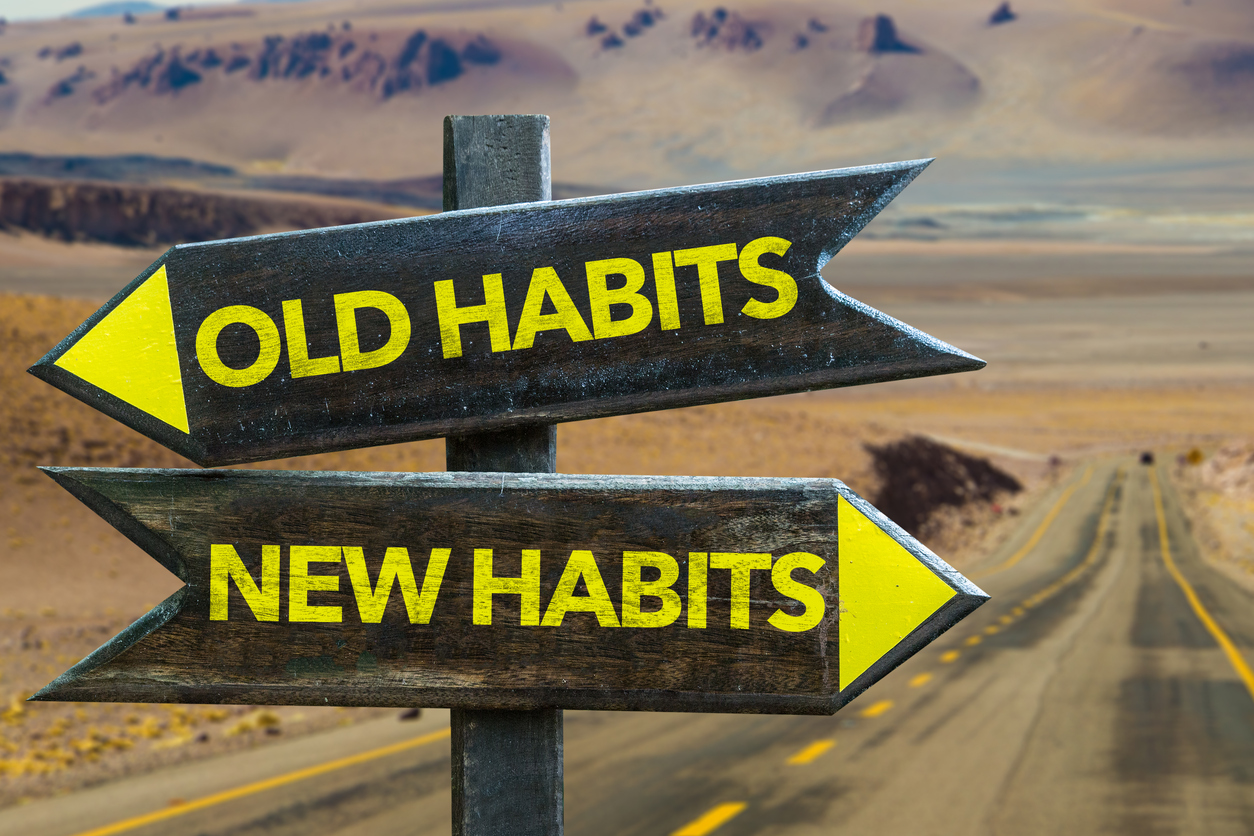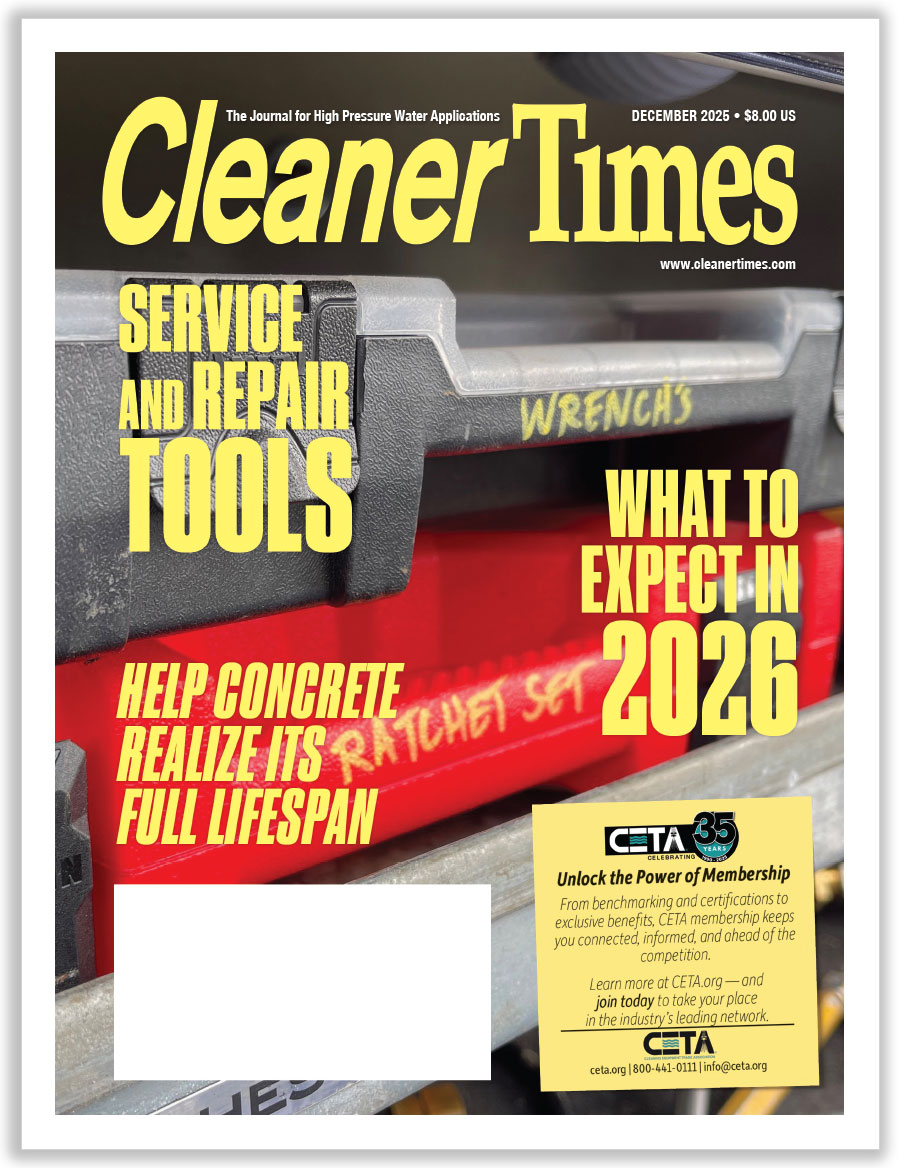
Good Work Habits
Written by Diane M. Calabrese | Published October 2024
It is so often repeated that it becomes automatic. That’s the compressed definition of a habit.
We know what good work habits are. Focus, efficiency, and organization are on the list in some form or another. We all know the adage, “Never put off until tomorrow what you can do today.”
Employers aim to put together a team of people with good work habits. In doing so, they add strength to their companies.
Each manager or owner has in mind a list of which attributes they would like to see each employee embody. Mike Hansen, sales manager—water division, at Dultmeier Sales in Omaha, NE, shares his list.
“Outgoing and personable, knowledgeable of the items offered or sold, and honest. The employee must show eagerness in accomplishing work, employ a good vocabulary and never use swear words, under promise and over deliver, be prompt with getting back to customers or fellow employees, take responsibility for their actions, and work as a team player—all would be characteristics I would like to see in an employee,” says Hansen. Every reader probably has a similar collection of characteristics.
Looking at the whole collection, we may see it as somewhat daunting to achieve at first. But look again. There’s nothing on the list that cannot be learned.
“All habits can be learned with repetition and constant striving to get better at what you do,” says Hansen. There’s one important caveat, and that involves leadership.
“As managers and business owners, we must practice what we preach,” explains Hansen. Moreover, to find good fits among job candidates, Hansen’s company does careful screening.
“We use personality testing in our position interviews,” says Hansen. “It’s a good way to learn quite a bit about people. It also keeps us from putting a round peg in a square hole.”
There’s nothing so unique as the individual. Gregariousness might be just the thing in one company setting, making cold calls in person and via digital means, but quiet diligence works best in other settings.
Results of standardized personality tests can help assess the best fit. In some states tests may not be permitted, however. And in most instances a prospective employee must consent to take the test and be informed it’s part of the application/ evaluation process.
Kylah Sellin is the talent and culture manager at Mi-T-M Corporation in Peosta, IA. She is quite firm about what she puts at the top of the list of good work habits: reliability.
“Reliability is the cornerstone of good work habits and encompasses punctuality, consistency, and dependability,” explains Sellin. “Reliable employees can be counted on to complete tasks on time, meet deadlines, and maintain a steady level of performance, which is essential for the smooth operation of any organization.”
Sellin envisions reliability as foundational. If it is in place, other work habits can be built upon it, which results in a dependable and productive workforce.
And Sellin gives us eight “important work habits” that begin with reliability: strong work ethic, time management, attention to detail, adaptability, teamwork, communication skills, problem solving skills, and continuous improvement.
We often think about continuous improvement as part of the innovative process at companies, yet it begins at the level of the individual. By “seeking opportunities for learning and self-development, employees become stronger in their skills and expertise,” explains Sellin. That strength adds to the vigor of a company.
Of course, each good habit works in concert with others. “Proactively identifying issues and finding effective solutions,” says Sellin, is a valued problem-solving skill.
Imagine that the problem identified and solution found should be shared with others at the company. “Clearly and effectively exchanging information with others,” says Sellin, “or communication skill, facilitates the sharing.”
It’s all a part of “collaborating effectively with colleagues and contributing to a positive team environment,” or teamwork, says Sellin. So, too, is time management, or “effectively prioritizing tasks and managing time to maximize productivity.”
Priority setting must always be done in conjunction with attention to detail. “Ensuring accuracy and thoroughness of all tasks,” says Sellin, is the way to define the required attention.
“Demonstrating dedication, initiative, and a willingness to go the extra mile” defines work ethic, says Sellin But
neither work ethic nor any of the other seven attributes can displace adaptability, and that is “being flexible and open to new ideas, changes, and challenges.”
So what is Sellin’s perspective? Is there a way for an employer to screen employees for good work habits?
“Absolutely,” says Sellin. “Screening for good work habits involves several effective strategies. Behavioral interviews, such as asking candidates to describe how they handled past work situations, provide insight into their reliability and prioritization skills.”
Other tools that Sellin suggests are sample tests and skills assessments and reference checks. Structured assessments can reveal information about capabilities. References can validate (or not) a prospect’s self reporting. (Again, there may be limitations on one or both tools in certain states.)
An employer can give a new hire the best start by using some combination of training or mentoring. “A probationary period allows for real-time observation of a new hire’s work habits, while a structured onboarding process and project management tools can provide early indicators of their performance,” says Sellin.
The effort a company makes to evaluate a new hire is not a one-sided endeavor. Prospective employees also assess the company. And the reciprocal weighing of pros and cons amounts to a good thing: an optimal fit for both.
Christina Vargas is the human resources manager at Chappell Supply and Equipment in Oklahoma City, OK. She explains that a fundamental question in every hiring process is this: “Does the candidate fit with the culture of the company?”
To sustain itself and grow, a company must be able to expect an employee to possess certain attributes. “It is important to have someone who is punctual and professional in the workplace,” says Vargas.
And coupled with the ability to show up and do the job is the willingness to do the job in a collaborative and collegial way. “Being a team player is a great asset to make a good environment for all employees involved,” says Vargas.
Even if some employees have not fully developed good work habits, they can learn them. “Work habits can be taught with the right attitude and positive criticism,” explains Vargas.
By communicating with employees, a manager or owner can assess how to focus training. “Asking the right questions of employees will illuminate a way to address problems,” explains Vargas.
During the hiring process there are some useful, subtle techniques for achieving the best screen for prospective employees. “Evaluating the resume in detail is where it begins,” says Vargas.
“Check for work history,” explains Vargas. “The time they have been at a job will determine the stability of a potential candidate. Look for grammar errors.” In other words, use the résumé to appraise the things generally associated with good work habits.
By thoroughly checking a résumé, a prospective employer can also gauge which questions should be asked of the job candidate during the interview, says Vargas. That leads to better formulation of questions and ensures key issues are addressed.
Use an interview process to gain an understanding of why a job prospect has applied to the company. Vargas says there are several questions that ought to be asked: What interests you in the our company? Why did you leave your last employer? What is your plan for the next five years?
What is the short of it? Those with good work habits ultimately seize the day. Carpe diem CT






